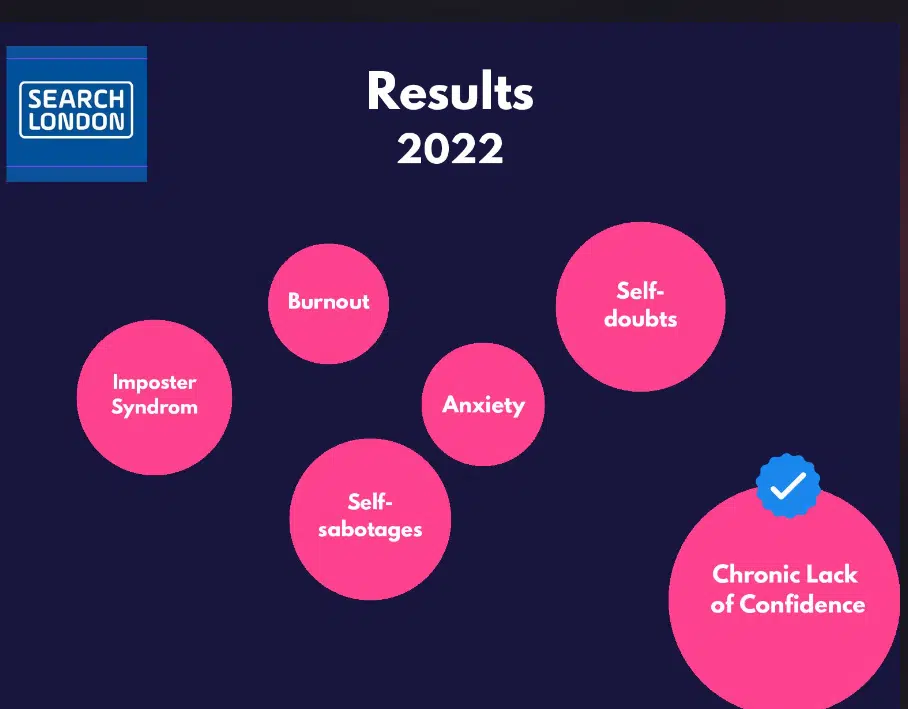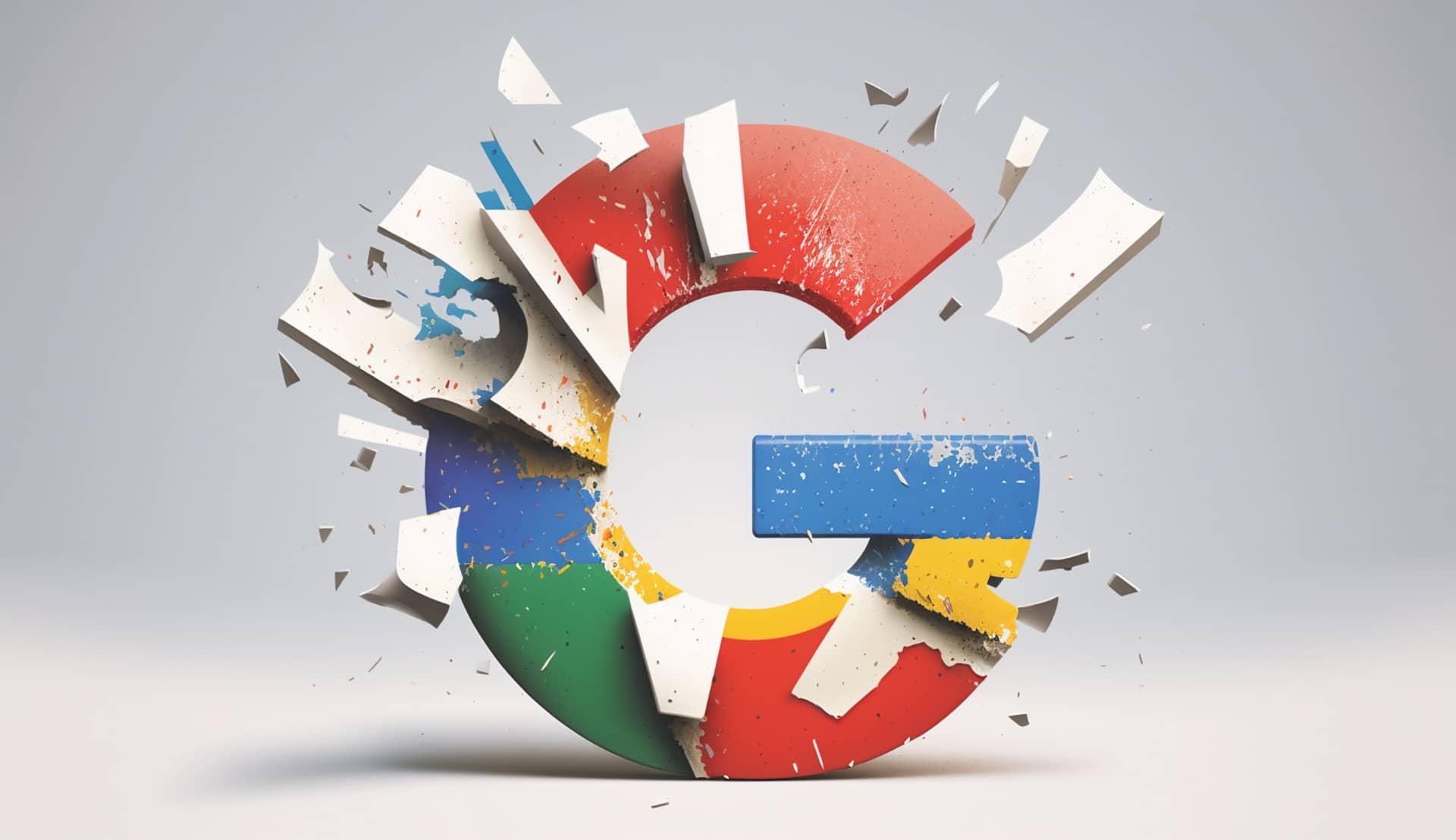I have spent most of my life feeling driven by the idea that I am not enough.
Whether I’m applying for an award or talking about my career with someone over drinks, I don’t really feel comfortable listing my accomplishments.
Even writing this article, I don’t feel my voice is particularly useful or cogent.
Of course, I don’t just let these feelings win. I sit with them, challenge them, and try to write or say the words my feelings deny. And I know I’m not alone.
These emotions are the classic markings of “imposter syndrome,” a term bandied about corporate offices almost as often as words like “synergy” or “optimization.” And at this point, everyone in the digital marketing industry has heard of imposter syndrome.
I surveyed over 150 digital marketers online, and 90% of the responses were positive: “Yes, I have experienced imposter syndrome in my digital marketing career.”
I ran two polls that confirmed the overwhelming experience of Imposter Syndrome – with 85% of Twitter respondents and 97% of LinkedIn respondents saying they experienced it in a digital marketing job.
So, most other people in digital marketing also feel like they aren’t enough.
We’re all silently berating ourselves, exhausted by self-doubt and internal criticism.
But why? Why do so many people feel like they’re trapped in the deepest well of their personal misgivings? How can we get out?
I spoke with numerous professionals in the digital marketing industry about their experiences with imposter syndrome, and I’ve uncovered three perspectives to consider when you’re facing imposter syndrome:
Remember: Imposter syndrome won’t just disappear. It’s not an on-off switch. But our awareness of its place in our lives is crucial to managing it.
1. Look within
When imposter syndrome is defined in various papers, online forums, and discussions with my peers, it’s usually described as a feeling. It’s an emotion rooted in one’s sense of lacking, unbelonging, and inherent deficiency.
“It’s a feeling of discomfort, of agitation – it’s not a nice feeling,” Tazmin Suleman said.
A former SEO analyst, Suleman now runs a business coaching SEO practitioners on their confidence at work and in their personal lives.
She has dedicated her career to combating imposter syndrome in the SEO industry through mindfulness training and soft skills growth. After being laid off amid the pandemic, Suleman knew it was time to direct her energy toward helping others overcome their doubts.
“If you get something wrong and say horrible things about yourself – which you wouldn’t say to someone else – how can you trust yourself?” Suleman said.
Growing as a person isn’t about critiquing oneself to the point of exhaustion but giving yourself enough grace to learn and grow.
Suleman acknowledges that it can feel impossible to keep up in an industry beleaguered by algorithm updates, legal rulings, and the latest technical buzz (read: AI).
“You can learn and learn and learn, but the thing that’s going to make you progress is action. And the way to take action is to feel confident,” Suleman said.
Information about the SEO industry flows infinitely, but one’s empowerment from that information can only be found by turning inward.
Imposter syndrome begets burnout
When left unchecked, imposter syndrome inevitably mutates into burnout.
When a person doesn’t feel like they’re enough, they don’t have to care about depleting their energy, relationships, or sense of self. It’s easier to be a machine when you ignore the body’s warning signs.
Adrijana Vujadin, SEO manager at Affirma, was driven by her burnout to examine imposter syndrome and find a way past it.
“I was hoping that one day I would open my laptop and just feel good about myself. But that didn’t happen. It was just more frustrations, more negative thoughts, more sabotaging,” Vujadin said.
She didn’t listen to her body’s anxiety attacks, ending her days covered in sweat from stress.
“I was ready to quit even my career, my job, because I realized that my mental health and the health of my body has been impacted by my work,” Vujadin said of her SEO career.
Then she took a break and read some books about taking control of her thoughts. One year later, she’s leading a talk at Search London called “How to be SEO Confident.”


Vujadin took the time to rest and began to realize that none of the work she does in SEO matters if she’s driven to the brink of exhaustion.
“Ninety-nine percent of people are talking about technical things and years of experience,” but this isn’t enough, Vujadin said. People can have 20+ years of experience and still feel imposter syndrome.
By posing a few questions toward one’s self-talk, a person can gain confidence and find meaning in their career:
Questions to pose against imposter thoughts
- Is this thought useful?
- Is this thought accurate?
- How many times in the past have you proven yourself good enough, despite thinking you weren’t?
These questions posed by Vujadin have helped her emerge from her lowest point to her current recognition as a stronger, more confident strategist.
Get the daily newsletter search marketers rely on.
2. Look around you
In many ways, the concept of imposter syndrome is a cultural lie. It didn’t start out with the name “imposter syndrome” – it evolved into this concept as part of office culture.
Originally described as the “imposter phenomenon,” in the late 1970s, the ideas of imposter syndrome have been coopted by numerous self-help books, office support groups, and therapy sessions.
Browsing iStock, I can choose from more than 1,300+ stock photos depicting imposter syndrome.
Today, “imposter syndrome” is used as a go-to phrase for anyone facing their first day at a new job or prepping for a public speaking gig.
The term “syndrome” implies an individual faces an issue they can treat. It can be as simple as a brief feeling of nervous anxiety or as complex as a six-month depressive episode.
Blaming oneself for imposter syndrome is self-defeating. It’s only going to create more problems.
People too often blame themselves for feeling imposter syndrome, according to Michelle Stinson Ross. As CMO of Feelalytics, Stinson Ross gathers data surrounding mental health and culture in the workplace.
“Being made to feel I’m an imposter is actually external,” Stinson said. “That’s the community’s fault that somebody feels like an imposter. Syndrome is a misnomer … because it is not internal, it is not a malfunction of the individual. It is a malfunction of the community.”
According to Stinson Ross, the SEO community is rooted in the technology and start-up industries. Its roots can be associated with a more analytical mindset that is traditionally perceived as male.
These origins create an environment where certain types of people might struggle to feel welcome.
George Nguyen is the director of editorial at Wix and a former editor at Search Engine Land. Despite his impressive resume, he still felt isolated because others did not look like him.
Rather than expecting people to conform to one type of logical, data-driven SEO, perhaps we can broaden our understanding of SEO as a practice and skillset.
“The imposter syndrome is not because I’m deficient, it’s because I’m trying to fit into some perception of myself that is not entirely authentic,” Stinson Ross said.
Allowing people to feel like their authentic selves at work creates a sense of belonging. And it is only through this sense of belonging that people can truly feel free from imposter syndrome.
Ultimately, the SEO community and employers in the digital marketing space need to take responsibility for making others feel welcome.
While it’s an individual’s responsibility to combat negative thoughts, it’s a culture’s responsibility to support each other.
3. Make others feel seen
There are three steps to addressing imposter syndrome:
- Step 1: Manage your internal self-talk. Tell your imposter syndrome thoughts to chill.
- Step 2: Acknowledge external factors contributing to your imposter syndrome. Who’s making you feel unwelcome?
- Step 3: Build a community.
Kristal Audain is a product manager and former senior SEO analyst at Groundworks. She’s faced multiple hurdles throughout her digital marketing career, from getting rejected for pay raises at a previous job to getting furloughed at the start of the pandemic.
Despite these challenges, she’s grown a presence on Twitter and has appeared on popular podcasts like The SEO Rant.
“It is humbling to receive compliments and there are days where it is still hard to have my voice heard as a black woman on a male-dominated team. However, my best piece of advice to anyone that thinks you aren’t enough, talk to your community and we will help light that voice in your head with a match and blow it up,” Audain said.
It’s impossible to feel like an imposter if you’ve found your people. The SEO community is like any other group of humans – we are bettered by our support and how we make each other feel seen.
Here are a few SEO communities that are available to folks based on their unique backgrounds:
In this list, I focused on diversity, highlighting groups for folks who might struggle with belonging. But there are many groups outside of this, from those specializing in a particular discipline of SEO to an organization’s internal Employee Resources Groups.
When we show up for each other, amazing things can happen. Whether you’re telling someone they did a great job with a presentation or reaching out to get a second perspective, everyone in SEO should feel like there’s a community to back them up.
“You’re modeling the types of behavior and communication that can foster belonging,” Stinson Ross said.
It is only through building true, authentic relationships with others that we can grow the SEO community into a space where everyone belongs.
Contributing authors are invited to create content for Search Engine Land and are chosen for their expertise and contribution to the search community. Our contributors work under the oversight of the editorial staff and contributions are checked for quality and relevance to our readers. The opinions they express are their own.



